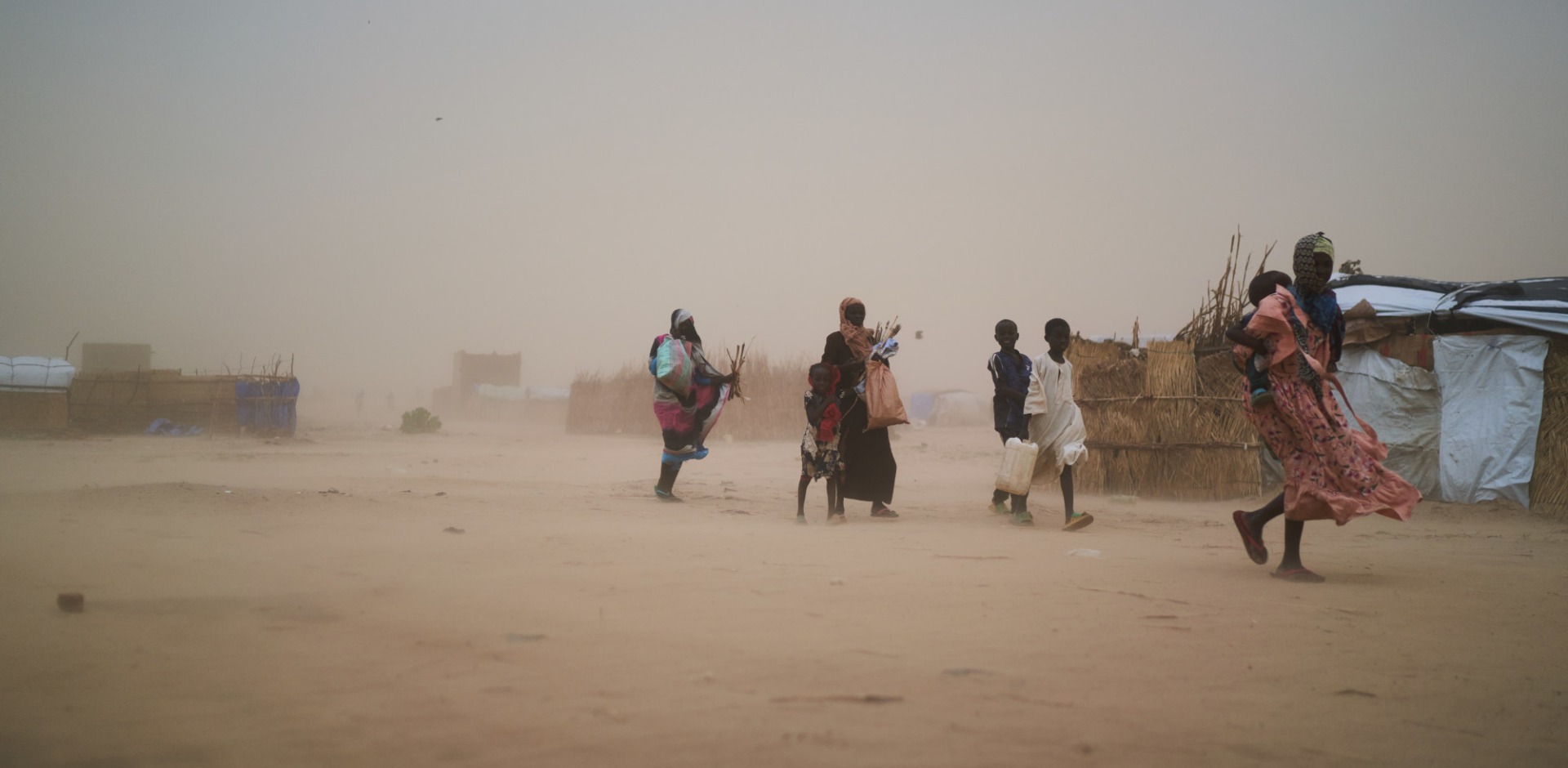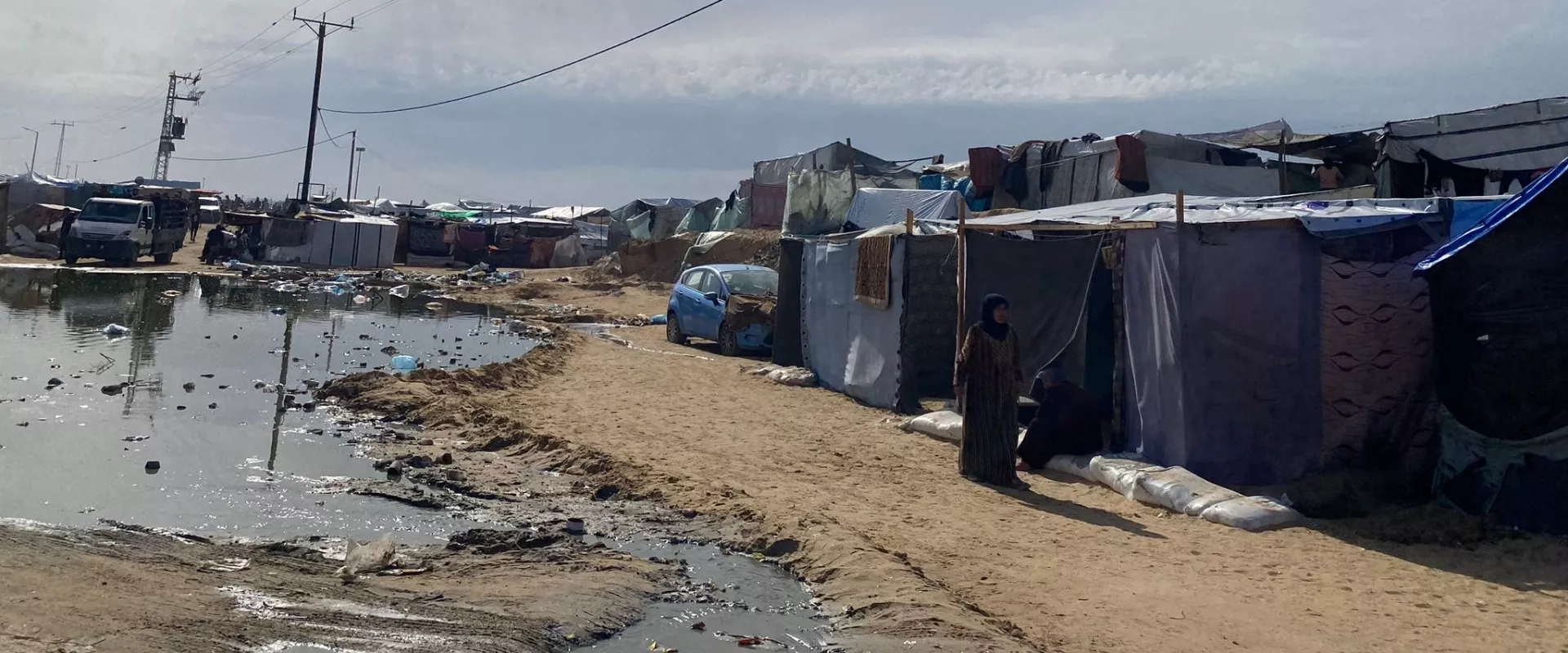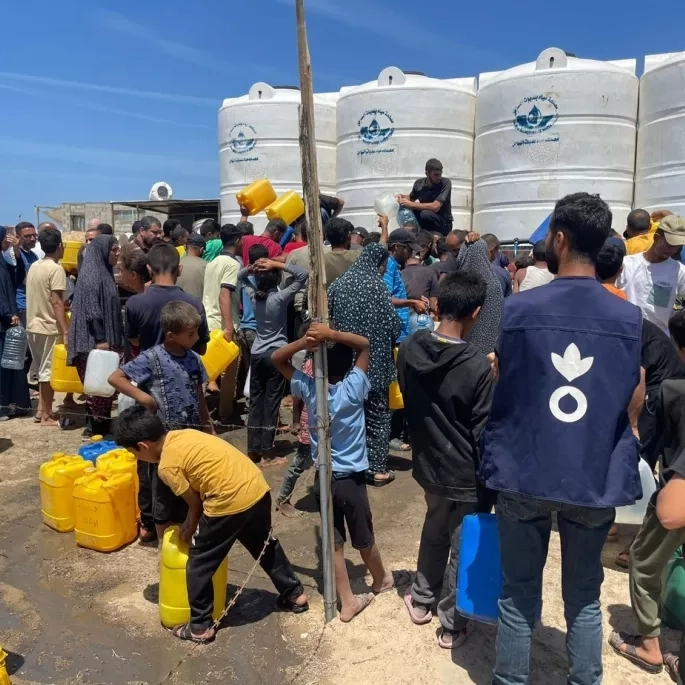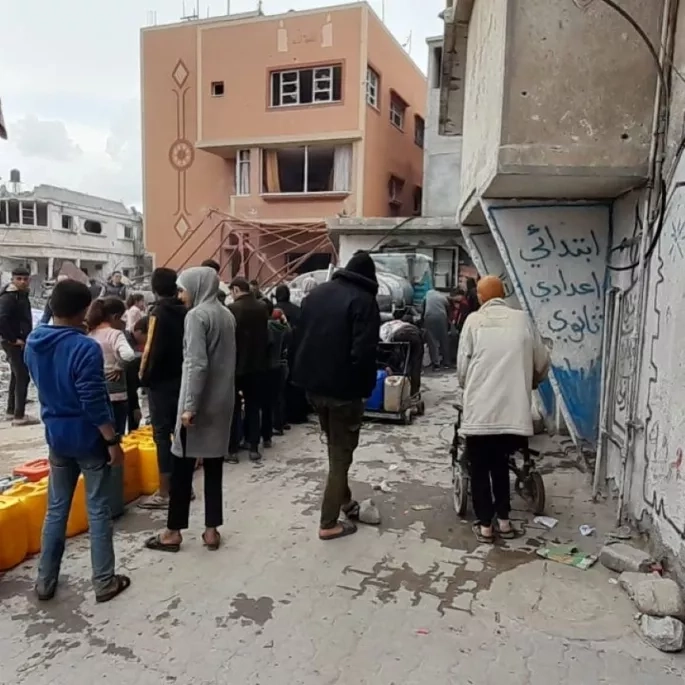
FAMINE IN SUDAN

Aid agencies and medical professionals have joined forces to call urgently for a ceasefire to allow life-saving polio vaccinations to be administered to about 640,000 children aged under 10 following confirmation of the first case of polio in Gaza in 25 years, with reports of other suspected cases emerging.
At least 50,000 children born during the past 10 months of hostilities are highly unlikely to have received any immunizations due to the collapsed health system, while older children among the one million children in Gaza will have had their regular vaccine schedules disrupted or halted by violence and displacement.
Polio had been eliminated in Gaza more than two decades ago, but last month the WHO reported that the virus had been found in sewage samples from sites in Khan Younis and Deir Al-Balah. This month, one case was confirmed by Gaza’s Ministry of Health in an unvaccinated 10-month-old child in Deir Al-Balah in the central Gaza Strip.
The reemergence of the poliovirus in Gaza is a direct result of the destruction of water and sanitation infrastructure, and the Government of Israel’s restrictions on repairs and supplies. Coupled with overcrowding, displacement, and a crippled healthcare system, these actions have created an environment ripe for the spread of the virus in Gaza.

All of Gaza is at risk of famine. Action Against Hunger is on the ground providing food, water, and hygiene and shelter kits to thousands in need. But Gaza’s hunger crisis is only getting worse, and humanitarian support is needed now more than ever.
A group of about 20 aid agencies and 20 medical professionals who have worked in Gaza said polio vaccines are in the region and ready to be distributed in August and September, but this requires full access for humanitarian supplies into Gaza from all border crossings, and safe, unhindered movement within the Strip. This can only be achieved with an immediate end to hostilities.
“Now polio is confirmed, the response needs to be measured in hours, not weeks. Without immediate action, an entire generation is at risk of infection, and hundreds of children face paralysis by a highly communicable disease that can be prevented with a simple vaccine,” said Jeremy Stoner, Save the Children’s Regional Director for the Middle East. “These children do not have the luxury of time.”
Polio, a virus that can cause irreversible paralysis in a matter of hours, is particularly dangerous in Gaza, where high malnutrition rates and toxic stress levels make children more vulnerable to infection. With Ministry of Health confirmations of polio in a 10-month-old in Deir Al-Balah, and WHO reports confirming the presence of polio virus in waste water, the situation is beyond alarming.
Humanitarian operations across Gaza are severely hindered by the ongoing bombardment and the obstruction of critical aid supplies and fuel at Israeli-controlled crossing points, and dangerous transit inside the Gaza Strip. Specialist refrigerated trucks needed to safely transport vaccines have been repeatedly rejected from entry, leaving thousands of children at risk.

Action Against Hunger has been working in Gaza since 2005. Since Oct. 7, Action Against Hunger teams have reached over 800,000 people. Teams distribute hot meals hygiene kits; truck clean water to communities; connect people with shelters; and provide assistance with removal of solid waste management.
“The health system in Gaza was destroyed long ago,” said Nahed Abu Iyada, CARE West Bank and Gaza’s Health Program Field Officer.
“Without an immediate ceasefire and access to vaccines and humanitarian aid across the Strip, the people of Gaza are facing a public health disaster that will spread and endanger children across the region and beyond.”
Humanitarian organizations urgently call for an immediate and sustained ceasefire to allow polio vaccinations to take place in Gaza. For a polio vaccination campaign to be effective, it must be able to reach at least 95% of targeted children, and this cannot happen in an active war zone. Any ceasefire or pause requested by the UN must be used to facilitate full humanitarian access, not just for vaccines but for the full range of assistance needed to sustain civilians’ basic needs. All parties to conflict have an obligation to facilitate humanitarian access at all times, regardless of whether conflict is active or not.
Join our community of supporters passionate about ending world hunger.